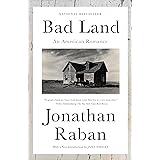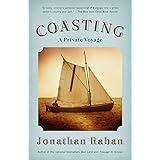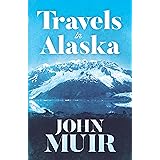
Download the free Kindle app and start reading Kindle books instantly on your smartphone, tablet, or computer - no Kindle device required.
Read instantly on your browser with Kindle for Web.
Using your mobile phone camera - scan the code below and download the Kindle app.

OK
 Audible sample Sample
Audible sample Sample 


Passage to Juneau: A Sea and Its Meanings Audio Cassette – Abridged, September 4, 2000
- LanguageEnglish
- PublisherHighBridge Company
- Publication dateSeptember 4, 2000
- Dimensions4.5 x 7.1 x 0.8 inches
- ISBN-10156511390X
- ISBN-13978-1565113909
The Amazon Book Review
Book recommendations, author interviews, editors' picks, and more. Read it now
Similar items that may ship from close to you
Product details
- Publisher : HighBridge Company; Abridged edition (September 4, 2000)
- Language : English
- ISBN-10 : 156511390X
- ISBN-13 : 978-1565113909
- Item Weight : 3.2 ounces
- Dimensions : 4.5 x 7.1 x 0.8 inches
- Best Sellers Rank: #10,676,998 in Books (See Top 100 in Books)
- #29,446 in Travelogues & Travel Essays
- #40,644 in Traveler & Explorer Biographies
- #1,098,262 in Politics & Social Sciences (Books)
- Customer Reviews:
About the author

Discover more of the author’s books, see similar authors, read author blogs and more
Customer reviews
Customer Reviews, including Product Star Ratings help customers to learn more about the product and decide whether it is the right product for them.
To calculate the overall star rating and percentage breakdown by star, we don’t use a simple average. Instead, our system considers things like how recent a review is and if the reviewer bought the item on Amazon. It also analyzed reviews to verify trustworthiness.
Learn more how customers reviews work on Amazon-
Top reviews
Top reviews from the United States
There was a problem filtering reviews right now. Please try again later.
I think the first point to make is that the writing mirrors the, by turns, eddying, chaotic, reflective quality of the sea itself, leading one deeper and deeper into the author's own meandering introspections about life and, yes, water in a very (to this reader anyway) seductive style, a style which is nothing if not allusive, reflecting Raban's own lifelong fascination with and profound love of literature. The account of Captain Vancouver's voyage along this same passage, taken from many sources, while certainly the most superficially parallel and certainly the most discursively ongoing of the allusions, is not in the end, the most significant and profound. That award must surely go to Raban's recounting of Shelley's last days and ultimate demise in the chapter entitled "Charred Remains", striking a parallel, in a much more profound manner than those accounts of Vancouver's voyage, to the last days and death of Raban's father and to the unsurpassed final chapter in which he invokes Cowper's "The Cast-Away" as a metaphor for his crumbling marriage and his own mortality.
Perhaps one, like Raban, has to already have a love of and familiarity both these poets to see what a feat he has pulled of here - though Raban provides the basic biographical background for each. To stick with the last chapter---Cowper isn't a poet much read anymore. But he's always been one of my favourites. One really has to be familiar with his intensely unbalanced life and mind to fully appreciate his poetry. In any event, by this last chapter of the book, we know what it's like to walk in Raban's shoes, to be in his boat, to wander through his mind and heart and to know how much he loves his family. When the hammer falls at the end with his wife and daughter deplaning in Juneau, we feel how crushed he is by it. And Cowper's "The Cast-Away" is the perfect poetic expression of the way we feel he feels, drowned not by the "real" sea he's been traversing, but by Cowper's metaphoric sea of despair. I frequently return to Cowper's "The Task"-A poem given him as a sort of assignment to ward off one of his mental fits-as well as "The Cast-Away" as two of the greatest poems in the language. I NEVER thought I'd see a modern author apparently effortlessly bring the despair of the all but forgotten poet back to life, but......Raban does.
So, yes, readers looking for a "sea adventure" yarn had better look elsewhere. How to know if you will fancy the book? Do you love history, English literature, introspective depths? Above all, do you know the feeling of being drowned by despair? Can you relate to Cowper's couplet?
"But I, beneath a rougher sea,
And whelm'd in deeper gulfs than he."
In short, do you know that INNER Sea? If so, this book will not disappoint.
Like most of Raban's books, Passage to Juneau, is written in two layers. The first is an account of his preparations and execution of a solo sailing trip from Seattle to Juneau, Alaska. The second level is an entertaining and well-researched historical account of the travels and travails of Capt. George Vancouver aboard HMS Discovery during his four-year exploration of the northwest coast of North America.
But it isn't really a story about a routine sailing adventure similar to that undertaken by dozens of boats every sailing season, is it. It is a poignant story of a successful writer who in late middle age looses first his father (to cancer) and then his wife (to neglect and absence of common focus) and is left alone facing old age in disconsolate apprehension and confusion. The reader is given an early clue to the direction the book is about to take when Raban, early on in his voyage, meets a married couple who seem to cling to each other like the two sides of a Velcro patch and makes the mildly derisive comment, "some people are more married that others," leaving us with the feeling that he isn't very married at all. This is reinforced throughout the book by his obsessive preparations for a planned visit by his young daughter, where he is looking forward to showing her the bears, with only passing mention that his wife will be coming along also.
Raban is an excellent writer who doesn't hesitate to bare his soul to the reader and does it with a refreshing lack of maudlinly and only a trace of sentimentality. He records his varying responses to his surrounding with an honest and only slightly judgmental way that lets the reader understands what is going on without feeling the need to interfere or change things. This interested-but-detached view is particularly apparent in his interactions with the members of the First Nations tribes he encounters, and in his slightly cynical take on the ceremonies he is invited to attend. It is like he is letting the reader share his view of the world through one of the portholes in his boat.
Passage to Juneau is a recommended read for anyone interested in maritime history, for present-day sailors traveling on sailboats, and to anyone wanting a poignant yet free-from-moralizing story about the personal passage of a late-middle-aged man facing an uncertain future.
Top reviews from other countries
Eigene Biografie und fremde Biografien wechseln sich mit launigen Geschichten ab, locker und humorig mit viel Selbstironie geschrieben, manchmal ins nachdenklich grüblerische, lyrische abgleitend aber immer anschaulich und interessant.
Ein Auszug:
“The sea was smooth as a pool of molasses. Twists of smoke rose from its surface in the chilly early-morning air. My propeller left a thick braid of wake that trailed from the stern for a quarter-mile, where it faded into mist”
Poetisch, bildhaft ohne gekünstelte Metaphern, der Autor versteht es mit Sprache Bilder zu malen.
Der rote Faden ist eine als Ein-Hand Segler unternommene Tour mit seiner 35 Fuß Ketsch (Zweimast-Segelboot) von Seattle entlang der Inside Passage bis nach Juneau in Alaska. Es beginnt mit einer Betrachtung von Seattle, dem Fischereihafen, den Leuten dort, ihren Hoffnungen und Lebensumständen. Er gewährt auch Einblicke in seine eigene Lebensweise, in die Gründe für diese besondere Reise und ihrer Vorbereitung. Ganz nebenbei tauchen in einigen der Kapitel jede Menge Tipps zur Literatur von und über das Meer, der alten Entdecker und Abenteurer, auf. Er erwähnt Titel und Autoren, zitiert alte Texte und Tagebucheinträge; eine Anregung für alle Interessierten sich weitere Werke vorzumerken. Sein ständiger Begleiter sind die Aufzeichnungen der ersten Expedition von George Vancouver in dieser Region, dem was gleichgeblieben ist und was sich durch das Eintreffen der Europäer bis zur Unkenntlichkeit verändert hat.
Einen großen Raum widmet er den Schicksalen von Menschen denen er begegnet. Gerade unter Fischern und Helfern findet er echte Typen, deren Lebensgeschichten jede für sich einen eigenen Roman ergeben würden. Auch den seit Jahrtausenden in dieser Region lebenden Menschen (gebräuchlich als Indianer, moderner als First Nations bezeichnet) kommen zu Wort – ihrer Kunst und Kultur, dem Eins-Sein mit dieser besonderen Landschaft zwischen Meer, Wald und Gebirge.
Seine Erzählung wimmelt von nautischen und fischereitypischen Ausdrücken, sodass auch ein geübter Leser englischer Originale ein gutes Wörterbuch benötigen wird. Dieses ist natürlich bei den meisten E-Book Readern dankenswerterweise integriert. Schreibstil und Wortschatz sind recht anspruchsvoll und ich war erfreut beim Recherchieren im WWW bei Google Books auf die deutsche Ausgabe „Passage nach Juneau“ übersetzt von Sabine Hedinger zu stoßen, leider ist die gedruckte Auflage vergriffen und nur recht teuer gebraucht verfügbar. Google Books bietet die Gelegenheit das erste Fünftel der deutschen Ausgabe zu lesen.
Einige kleinere Ungenauigkeiten, bezüglich Geografie und Handhabung des Segelbootes haben mich etwas irritiert, dies aber nur weil ich selbst mit Booten und Schiffen zur See gefahren bin und die Erzählung so faszinierend fand, dass ich die Reise des Autors mit Hilfe von Google-Earth verfolgt habe. Als Beispiel möchte ich auf einige öffentliche Videos verweisen, u.a. auf youtube.com/watch?v=gOarEdfJQ2w zur Passage „Cruising through Deception Pass”. Man erkennt, dass die Fahrt nautisch anspruchsvoll aber längst nicht so dramatisch wie geschildert ist.
Fazit: Schöne Sprache, im Original und der gelungenen Übersetzung, kurzweilig und doch nachdenklich erzählt. Als deutscher Leser erfährt man vieles über diese ferne Sehnsuchtsregion, das man so noch nicht gekannt haben dürfte. In einigen Passagen neigt der Autor ein wenig zu sehr zu tiefenpsychologischen Betrachtungen und der Vermittlung seiner ganz persönlichen Befindlichkeiten, hier hätte die Erzählung für meinen Geschmack etwas gestrafft werden können, es bleibt aber ein sehr gelungener Bericht über die Besonderheiten dieser Region und ihrer Bewohner. Knappe 5 Sterne für mich.










